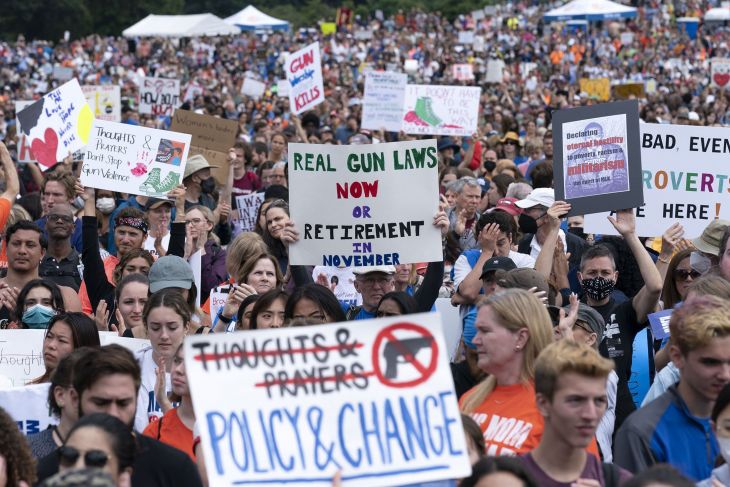On Tuesday, I published an article in which I asked a simple question: can democracy survive?
A number of readers responded with a question of their own: does democracy exist?
It is difficult to give a positive response.
According to Wikipedia, democracy is a form of government in which the people have the authority to deliberate and decide legislation ("direct democracy"), or to choose governing officials to do so ("representative democracy").
“Direct democracy” is an impossibly utopian ideal. Millions or tens of millions of voters cannot decide every law and piece of legislation. Direct democracy as practiced today is usually an authoritarian or dictatorial regime in which the leader and security forces run the election, dictate the outcome, and the average person is not allowed to speak their mind.
Representative democracy is an oxymoron in today’s political world.
A representative is part of a political party and owes loyalty to the party and its leader unless he or she wants to sit alone in some dusty corner of the legislature.
As part of a political machine, the representative must be elected by a group of citizens. Yet the representative is not often beholden to them.
In today’s political world, getting elected requires raising tens of thousands or in some cases millions of dollars to engage in the kind of advertising and campaigning required to run for office.
Thus, while 80% of Americans want strong anti-gun legislation, their “representatives” constantly vote down any measure that aims to satisfy this demand.
Why?
Because the National Rifle Association funds their political campaigns and determines how representatives vote on gun related issues.
Indeed, one may ask if “representatives” or leaders in any democracy represent citizens or their financial backers.
Another issue is that of elections management.
In 2016, Democratic candidate Hillary Clinton won a plurality of the national popular vote—48.2 percent—with a nearly 3-million vote margin. Yet, Donald Trump carried 30 states and won the Electoral College vote by a 304-to-227.
Republican candidates in House of Representative elections received 49.13% of total votes cast in 2016 and won 55.4% of U.S. House seats. Comparatively, Democratic candidates received 48.03% of votes and won 44.6% of races.
In the 2021 election in Canada, only 62.25% of voters voted. The Liberals formed a government with 32.6% of that 62.25%, which translates a government elected by 20% of all voters.
I believe that an analysis of other democracies will reveal similar results with respect to voter participation and support for governing parties.
Is it any wonder that many voters are frustrated?
In a recent Toronto Star article, Chantal Hebert, a journalist with a deep understanding of Canadian politics, reported that 85% of elected officials ran for office for altruistic motives, and most left office sooner or later disenchanted with party politics.
If elected officials feel this frustration, how can one expect the average voter to respect the system that creates such discontent?
Voters are abandoning politics with much cynicism. When a majority of voters believes that “they are all the same” and they “don’t have my interests at heart”, then they are unwittingly preparing the way for the authoritarian populist who appeals to and legitimizes their base feelings.
But when voters abandon political involvement, are they not abandoning control over their lives and the life of their nation?
In his 1961 inaugural address. the late U.S. President John F. Kennedy told Americans “Ask not what your country can do for you, ask what you can do for your country”.
Are leaders and voters capable of responding positively to this admonition?
I believe not.
The truth is that today’s leaders show little interest in changing the system, and today’s voter shows little appetite for participating in the current political process to demand the changes required to improve the system.
Voters can complain as much as they want to, but complaints without involvement will not bear results. Only higher voter participation will result in more effective representation at all levels of government.
So, does democracy exist? Well, it does but maybe not as voters intended. Perhaps it is best to view it from the way Winston Churchill did when he said, “Democracy is the worst form of government, except for all the others.”
But can we settle for the lesser of many evils instead of the best political system?
In this light, can democracy evolve?
Not if leaders continue to succumb to their own personal ambitions, greed, and the lure of financial and political support from special interest groups.
Not if voters abandon their responsibilities as citizens.
And not until human nature changes for the better.
Keep reading: Can Democracy Survive?
Edición: Laura Espejo
La Resaca 2.0
Normando Medina Castro
El compromiso cotidiano con la lucidez
Lourdes Álvarez
